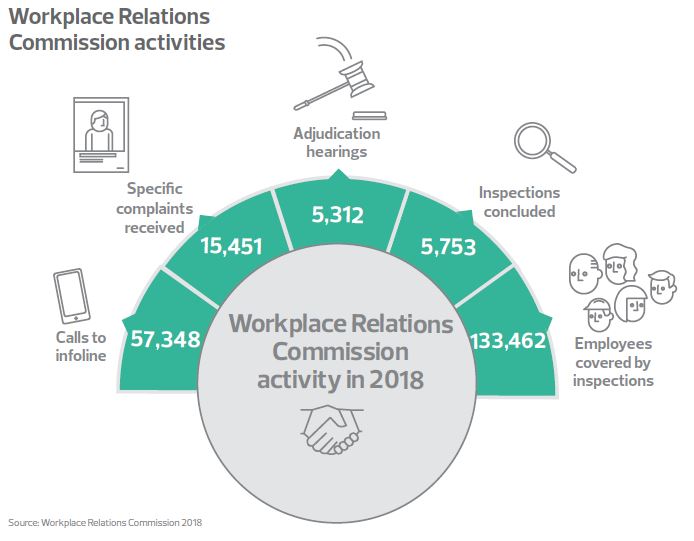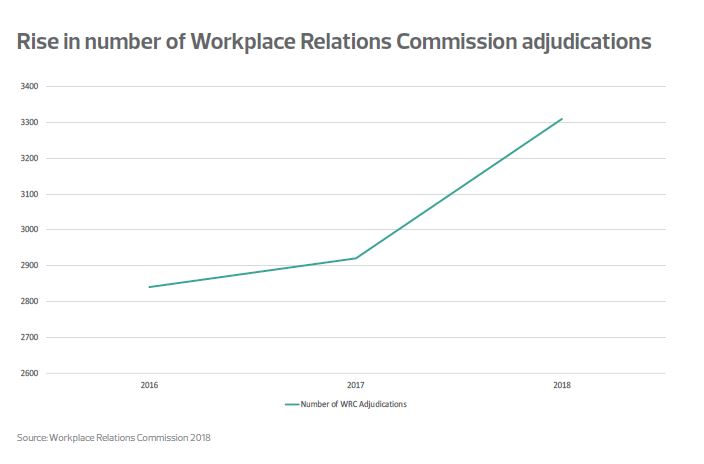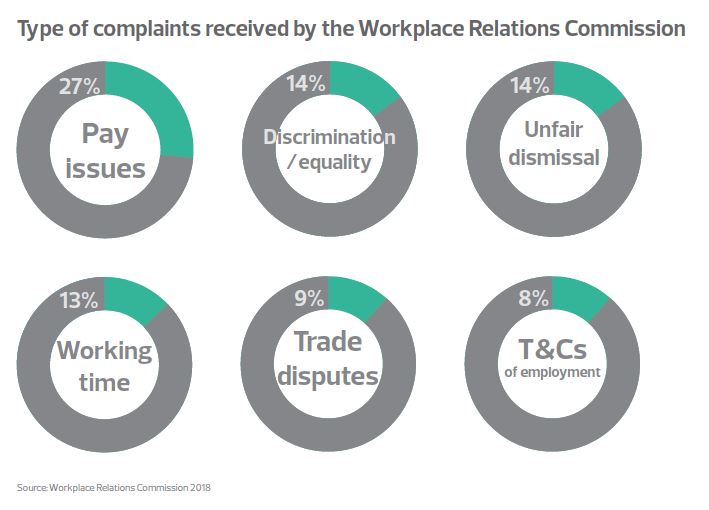Workplace disputes are on the up – the number of employment tribunal cases has nearly doubled over the past year. In this contentious era, you must protect your organisation. The key is to embed the right processes, cultures and behaviours to stop conflict arising in the first place.
Today’s enlightened employees know their rights. And they expect your organisation to play by the rules. They want you to behave responsibly and fairly and treat them with respect and dignity. When they feel let down by your actions, they’re quick to turn to employment tribunals to put it right.

The removal of employment tribunal fees in 2017 was a turning point for workplace disputes. Disgruntled employees can now make an online claim against your organisation without needing to pay an entry fee. You must protect your position. Drawn-out tribunal claims create a major management distraction, use up valuable working time and can lead to serious reputational and financial risks.


Proactively prevent disputes
Workplace conflicts rarely resolve on their own. You need to embed the right processes and culture to deal with employees’ concerns in the right way.
1. Make managers your first line of defence
Too often, managers aren’t given the skills they need to direct their teams. They’re expected to support staff and deal with their concerns despite not being shown the right way to do this. This can have serious consequences. Today, poor management is a top cause of workplace disputes. Make sure you train your people before they take on manager positions. You should show them how to apply employment law fundamentals and HR best practice and give them the skills they need to become expert communicators and leaders.
2. Deal with concerns in the right way
Once an employee raises a concern, you have a small window of opportunity to deal with it before it escalates into a dispute. The longer a problem goes unaddressed, the bigger it becomes and the harder it is to resolve amicably. It’s not enough just to put policies and procedures in place. You must also create a culture where employees feel their concerns will be taken seriously. An informal resolution system that’s accessible and effective will help employees see the value of coming forward and reassure them that their concerns will be listened to.
3. Keep accurate records
Employment contracts are a critical piece of evidence when workplace conflicts arise. If they’re up-to-date, correctly reflect the agreed terms and properly executed, they can help your organisation prevent lengthy disputes or drawn-out tribunal claims. Unfortunately, we know many don’t think about whether their employment contracts are fit for purpose until it’s too late. Make sure you take proactive steps to protect your position. Your employment contracts should be well-written, legally sound and reflect the realities of a worker’s everyday working life.
4. Understand your obligations
Today’s enlightened employees expect your organisation will act with integrity. Make sure you stay ahead of legislative and regulatory requirements around equality and discrimination and whistleblowing, as well as those governing how you should process and handle your employees’ personal data and how you run fair dismissal processes. You’ll also need to be able to show that you act fairly. A regular payroll audit will help you show that National Minimum Wage rules have been correctly applied. A workforce equal-pay-audit will also allow you to eliminate any equal pay issues.
5. Utilise ADR practices
Alternative Dispute Resolution practices are becoming more popular, offering informal solutions to employers and employees like mediation, facilitated meetings and other alternatives to playing out your workplace disputes in a public third-party forum. The introduction of the Mediation Act 2017 corresponded with a shift in employment law legislation towards more informal solutions. In an effort to resolve conflicts at an earlier stage and in a less formal manner, mediation is now a requirement of the dispute process.

